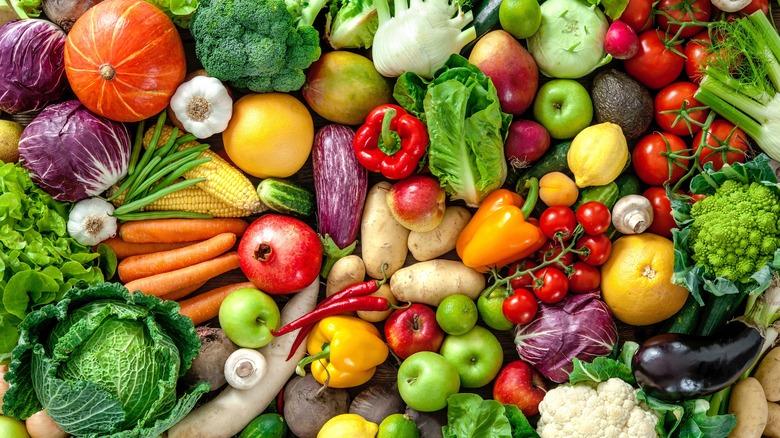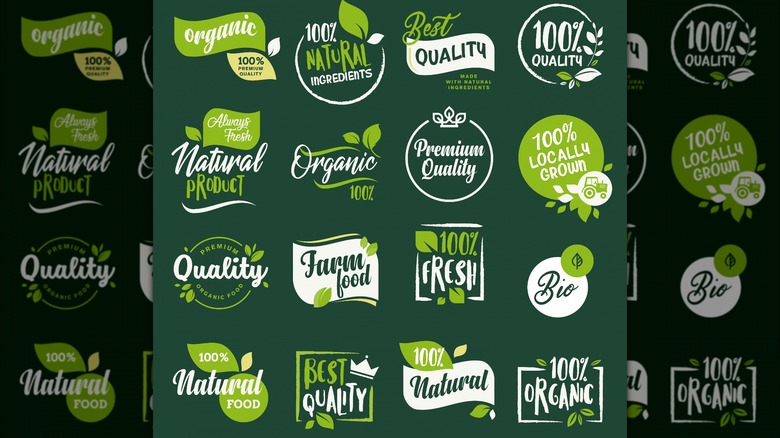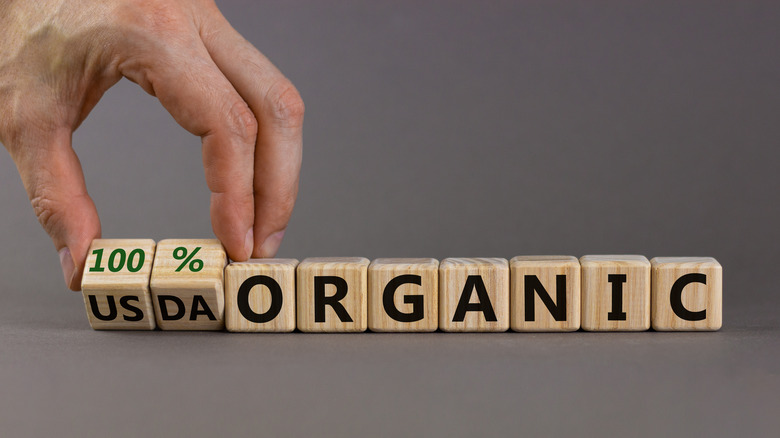Natural Vs Organic Food Labels: What's The Difference?
There is a lot of confusing language written all over the packages of food on your grocery store shelves. Can you really tell the difference between non-organic and organic food — other than by the price tag? If you've ever seen the word "natural" written on a package and wondered what the heck that really means, you're not alone. There is a difference between food that is labeled organic and food that is labeled natural, and that difference comes down to government regulation.
In short, certified organic food is held to a codified standard; natural foods are not. According to the USDA, organic food — be it produce, animal products, or processed foods — must all meet a set of federally-regulated standards. Since so-called natural foods are not subject to regulation, that label often just loosely refers to ingredients that aren't artificial or genetically modified. But as you might imagine, the quality of natural food is in no way guaranteed.
What are natural foods?
Natural foods usually don't contain artificial ingredients like colorants and preservatives. For instance, if you buy a box of generic-brand fruit snacks, you're likely to be buying a product made with ingredients like Red40 artificial dye. You can find fruit snacks with "all-natural" labels which are more likely to contain naturally occurring pigments like beetroot powder or carrot powder; however, there aren't any regulations about natural additives — meaning if you read an ingredient label that says "contains natural flavors," that could mean just about anything.
Even though natural flavors are usually derived from food sources, they're still manmade: Food scientists create flavors that mimic foods our brains recognize. For instance, we recognize grape-flavored foods as tasting like grapes, but rarely do they have anything to do with an actual grape. These types of flavors are regulated by the non-governmental Flavor Extract Manufacturers Association, and many of them claim to be safe for consumption.
What is organic food?
Organic foods must be grown, farmed, or processed according to government-regulated organic food laws. These foods often are farmed without caustic pesticides (although it's important to note that just because a food is organic doesn't mean it's pesticide-free). You should thoroughly wash all produce that you bring home, regardless of its organic status.
Organic meat is farmed to USDA standards, and in order to be called organic the animal must be allowed to graze for a certain number of days as well as live its life free from hormones or antibiotics. It's a similar story for eggs — one of the things people get most confused about is the difference between cage-free eggs and pasture-raised eggs. It's good to have a guide to organic foods to know what is worth buying organic and what you can save a few dollars buying generically. If the quality of your food is important to you, when in doubt, read the ingredient label to know what you're actually getting. The differences may surprise you.


